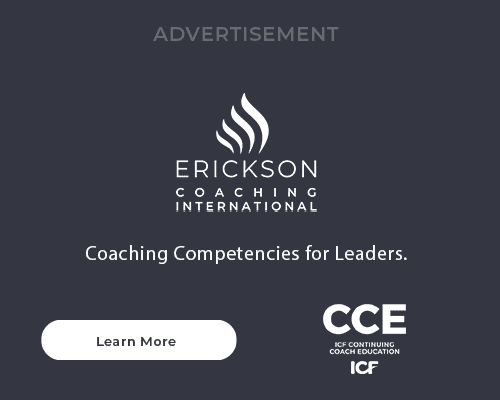Coaching in an Age of Full Disclosure
Once upon a time, there was a fairly bright line between private and public information. We kept our religious, political and personal affairs to ourselves. No one apart from close friends and family was entitled to know what we believed, who we loved or how we voted. All of that started to change in December 2002, when the modern age of social media was born with the launching of LinkedIn. Fifteen months later, Facebook was unleashed, and our private and public lives began their march toward an inevitable boundaryless mashup.
It was around 2010 when an overwhelmed client updating her various online profiles raised this question with me during her session: “How much of myself should I share?”
Fast forward 10 years, and social media has made that question even more complicated and important. We can pay a steep price if we aren’t intentional and judicious about what we decide to share online. And we have to assume that anything we post has the potential to be seen by anyone and live forever.
In an age of tell-all influencers and brands, how much of ourselves—of our personality, beliefs, values, lifestyle—is appropriate to disclose? This question challenges our willingness to be vulnerable. It tests our trust of our networks and clients. It compels us to clarify the personal brand we want to be known for.
At the end of the day, it’s 100% up to you what you decide to share. There’s nothing in our official social contract that says we have to tell anyone anything we don’t want to.
The challenge is the unofficial social contract. It’s the one that expects us to shed our protective outer shell in the spirit of being authentic and vulnerable…no filter, no deflecting, no hiding.
This is of particular concern to coaches. After all, we’re in the vulnerability business. We ask our clients to trust us with their innermost thoughts, hopes and fears. What can we offer in return?
Let’s start with the elephant in the room: the current political divisiveness on social media. It’s tempting to go dark and therefore avoid the entire question of what to share. But going completely dark isn’t an option for most of us; we’ve come to rely on these platforms for networking and marketing.
Transparency is increasingly expected; there are frequently calls on social media for businesses to clarify where they stand on a political or social issue. This has led to consumers being able to make more informed choices and spend their money with companies that align with their values. This is, overall, a positive trend. The flip side is the rise of “cancel culture,” where those who disagree or find someone’s behaviors or values offensive will demand a boycott or similar shunning of the company.
Most coaching businesses aren’t international conglomerates. Our social media reach is a drop in the ocean by comparison. Twitter isn’t screaming at us to reveal which candidates we support. We can choose to take the risk and share our views, likely with little consequence. But no one should feel pressured into making direct political or social statements through their business. Walk your talk, but don’t feel obliged to talk your talk, unless you feel a personal responsibility to do so. And remember: Just because your peers might be doing it, doesn’t mean you have to join them.
I decided several years ago to remain intentionally neutral on my social media business pages. To start imposing my political views is a violation of the trust my community has placed in me. It feels unethical to use the business platform I’ve built on a specific brand promise as a personal bully pulpit.
You have plenty of other options through which to express your core values. Volunteer or donate to causes you care about. Embody your values in how you show up, who you work with, and in your offerings and messaging. The goal is to show, don’t tell.
The same discernment process is important for other personal information you might be on the fence about sharing: religion, family status, mental or physical health, trauma, work history, achievements, and failures, to name just a few.
As you consider defining your boundaries, ask yourself:
- Does sharing this information align with my brand promise?
- Does this experience, belief or trait directly inform who I am as a coach?
- Is sharing this necessary to clarify my values?
- Does it serve my audience and their needs? (Go deeper: What’s my motivation?)
- Does it honor the trust they have placed in me?
Use your responses to help guide you in deciding what to share and the balance of risk and reward. The best thing you can do is trust your intuition and stay true to yourself.




Thanks Beth….very thought provoking. And i think for a coach to share vulnerably and model limited self disclosure in coaching, it should be done live and NOT on social media. My program http://www.ConsciousLivingMastery.com
is just that….for coaches and therapists to smooth out the ‘rough edges’ in their own lives to be more authentic and soulfully present to their clients.
As Pangloss said in Voltaire’s Candide in the last line, ” and we all must cultivate our gardens” a metaphor for what we as coaches do in our own self development and with the growth mindset with our clients. Emotions are mentioned 9 times in the new competencies and that includes for the coach as well as their client.
“ To start imposing my political views is a violation of the trust my community has placed in me. It feels unethical to use the business platform I’ve built on a specific brand promise as a personal bully pulpit.”
Well said Beth. There’s a plethora of social media posts with the tone of “ I know the right way “ or “ what is the wrong way “ or ‘ I have the answers “ – so a pulpit in any direction. This sales approach feels strangely out of place with ICF. Thanks for raising awareness on this issue – and for your chapter leadership.
Nice post Beth and well said, putting your best foot forward is the right approach for most businesses I think which encompasses the idea of staying neutral where there are views of bias in one direction or the other. Anything that puts the business in a positive light as a whole should be the aim.